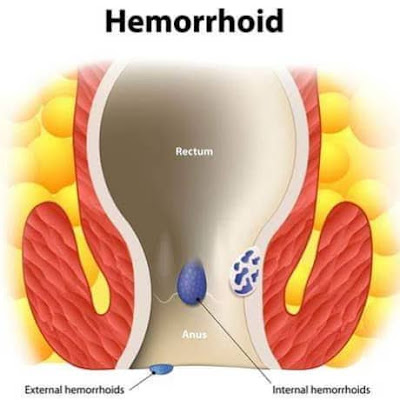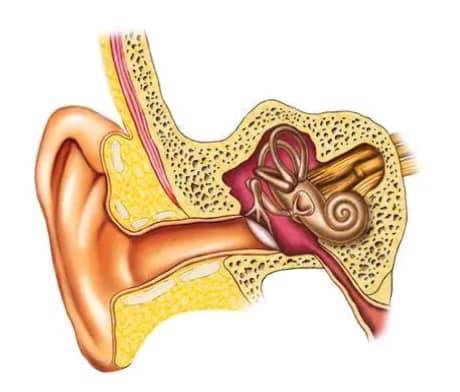 |
| Gastrointestinal |
Gastrointestinal
Gastrointestinal disorders are terms used to describe diseases and conditions that occur in the digestive tract.
The gastrointestinal tract, along with the pancreas, liver, and gallbladder, make up the digestive system. It supplies blood to these organs and carries nutrients to different parts of the body. Hormones and nerves work together to regulate the function of the digestive system. The bacteria in your digestive tract (called your gut flora or microbiome) contribute to your digestion, immunity, and overall health. A membranous sac, called the peritoneum, holds all the organs of the digestive system together.
Many different illnesses and diseases affect the gastrointestinal tract and can affect digestion and general health.
Common digestive disorders are:
Celiac disease:
Celiac disease is a very serious autoimmune disease in which the small intestine becomes highly sensitive to gluten. Gluten causes your body's immune system to attack your small intestine. these are tiny finger-like projections that are useful resources withinside the absorption of vitamins.
Celiac disease can develop at any time and symptoms include bloating, changes in diet (constipation or diarrhea), swelling in children, rashes, and slow growth. Currently, the only treatment for celiac disease is a lifelong gluten-free diet. Terminology Many people have regular bowel movements, so the time from stool to constipation varies from person to person.
Constipated people usually have small, dry, hard stools that are difficult to pass. Other symptoms include abdominal gas or bloating and painful bowel movements. Hemorrhoids are usually accompanied by constipation.
There are many causes of constipation, including dehydration, lack of fiber,pregnancy, lack of exercise, and the use of certain medications (such as iron supplements, antidepressants, and opioids). Laxatives are an excellent option for relieving constipation, and lifestyle changes can help prevent constipation from recurring. Persistent intestinal disturbances can occur, but the area that connects the small and large intestines is most commonly affected. The exact cause is still unknown, but it is more common in "Western" countries and is inherited in families and diet.
Gastroesophageal reflux disease (GERD):
 |
| Gastrointestinal |
GERD is sometimes called heartburn or acid reflux. The muscles around the opening to the stomach (known as the lower esophagus or sphincter) are weak and do not close to stop food from backing up into the esophagus,
The most common symptoms of GERD are heartburn, belching, chest pain, and nausea. GERD is usually treated with antacids, H2 blockers, and proton pump inhibitors.
The primary symptom of GERD is a burning sensation inside the chest. that is because of acid entering the esophagus.This causes a very awful flavor in your mouth. most sufferers of kidney disease increase reflux esophagitis. The kidneys manipulate the water stability in the frame.
The above is sufficient to finish that GERD is caused by a fluid imbalance inside the frame.
Fluid imbalances lead to heart sickness and excessive blood strain. And those two cause stroke.
different signs and symptoms are -
trouble consuming spicy meals
problem-consuming greasy meals
Feeling full all of the time
difficult to consume
chest weight
Hemorrhoids and anal fissures:
 |
| Hemorrhoids and anal fissures |
Hemorrhoids occur when the anal pads (small pieces of venous tissue that surround the opening of the anal artery and protect you from incontinence) stretch and swell. They can be found internally or externally, and both types can be shed during bowel movements. External hemorrhoids resemble small bunches of grapes and are very tender, red, and itchy when inflamed. Hemorrhoids can press on the rectum but are usually invisible. After a bowel movement, the inside of the rectum can prolapse ("pop"), which is very painful. Treatments include hemorrhoid creams and suppositories. Other, more specialized treatments such as sclerotherapy or laser treatment may be needed. An anal fissure is a small tear in the thin layer of tissue that lines the anus. They are common in newborns and usually occur during bowel movements. Using laxatives and increasing the amount of fiber in the diet can help reduce bowel movements and prevent anal fissures from progressing.
Irritable Bowel Syndrome (IBS):
IBS is an American digestive disorder described by The Society as "abdominal pain with altered bowel movements." Analysis of irritable bowel syndrome usually takes 3-5 years, and at most he needs 3 doctors. Analysis problems are often caused by various symptoms of IBS. Some people are prone to constipation (he with constipation IBS or IBS-C) and others have diarrhea (IBS with diarrhea or IBS-D).
These signs and symptoms mimic a myriad of different conditions, including endometriosis, food allergies, and inflammatory bowel disease, Most of them need to be treated before IBS analysis can be done. Yes. Treatment depends on the type of IBS (ie, constipation or diarrhea predominates) and usually includes medication and dietary changes.
Ulcerative colitis:
 |
| Ulcerative colitis |
Ulcerative colitis most likely affects the lining of the colon, which is the most practical area of the bowel affected, but the entire colon is affected. These include diarrhea and the constant need to have occasional bowel movements (also called tenesmus). Mucus and pus may be the result of ulcers in the colon. Other symptoms include rectal bleeding or bloody stools, abdominal pain, fatigue, and loss of appetite. The reasons for this are not yet known, but an unbalanced immune response may be the cause of the inflammation, but stress and diet can also exacerbate the condition. Treatment includes corticosteroids, antidiarrheals, immunomodulators, and biologics, depending on the severity of the disease.
What are the differences between northern and western countries and tropical third world countries?
Exercise: Most people in third-world countries do a lot of exercise. Plow the fields, hunt, and do a lot of walking. Sun exposure: Work better outside and get more sun exposure. They are not limited to air-conditioned offices or homes. It provides plenty of vitamin D, which has anti-inflammatory benefits. Social relations: Most are poor and tribal, so they live with family and friends. As a result, they are less socially isolated and do not experience as much loneliness or social anxiety as Westerners. Diet: They eat a diet rich in plants. These foods are rich in nutrients, especially anti-inflammatory omega-3 fatty acids. Stress: Few people in the Third World face daily stressors such as smartphones, social media, 24/7 news "crises" and "warnings", office politics, and money worries.

.jpg)
.jpg)



